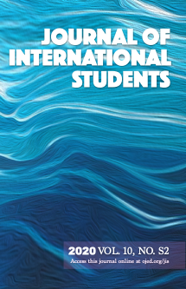Liisa Uusimaki & Susanne Garvis (2021)
ABSTRACT
The purpose of this article is to present a qualitative study exploring a small cohort of nine international students’ in-depth reflections about their teaching and learning experiences studying at a major Swedish University. Interestingly while there have been numerous studies reporting on the experiences of international students attending Anglo-Saxon universities, few studies have explored the teaching and learning experiences of international students studying in Sweden, Carol Rodger's (2002) model of four functions of reflections provided a novel way to explore international students’ reflections about their learning experiences in Sweden, especially how these are shown in the following different cycles, of presence, description, analysis and experimentation. Making sense of international students’ experiences allows us as university lecturers to enhance our of understanding how to better support students in their learning away from their home universities. A qualitative content analysis was employed to the data collected from 3 focus groups. Findings showed that the international students experienced several cultural and contextual differences from that of their home universities. The differences related to course structures, teaching, and learning, as well as the relationship with their Swedish university lecturer(s).

